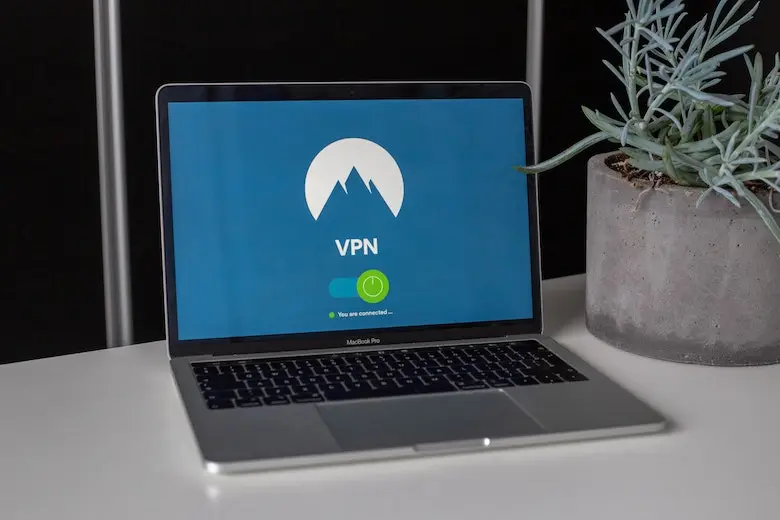Point-to-Point Tunneling Protocol, known as PPTP, was the very first VPN Protocol ever used. It was created by Microsoft’s Gurdeep Singh-Pall in 1999. The purpose was to route network traffic over unsecured networks like the Internet, enabling corporations to build networks using publicly available infrastructure. Gurdeep’s invention paved the way for various VPN protocols used by different services today, and despite its age, PPTP VPN remains functional and useful.
Since its inception in 1999, many other protocols have emerged, rendering PPTP somewhat outdated. Newer options have taken their place, making them less commonly used today.

Table of Contents
How Does PPTP Work?
The PPTP (Point-to-Point Tunneling Protocol) client is like a safe passage that connects to the PPTP server. This passage also called a “tunnel,” helps protect and encrypt all your online data while it travels between your device and the server.
To explain it further, PPTP takes your network data and wraps it in a protective cover known as an “IP envelope.” Once this is done, any router or device that comes across this data will treat it just like a regular piece of data. When the PPTP server receives the wrapped data, it then sends it to the web or the specific destination device you intended.
Creating the PPTP tunnel involves communication between the client and the server on TCP port 1723. This connection is used to establish and manage the secure passage between the two ends. Furthermore, to ensure everything stays secure, the PPTP protocol authenticates the data packets at both the client and server’s ends of the encrypted tunnel. This way, your data stays protected throughout its journey.
Technical Aspects of PPTP
- To connect to a PPTP server, all you need is the server address, along with a username and password.
- PPTP is highly compatible with various operating systems and devices. It works smoothly on Windows, Linux, macOS, iOS, Android, Tomato, DD-WRT, and more.
- PPTP relies on three main components for communication: GRE (General Routing Encapsulation), TCP port 1723, and IP port 47.
- PPTP supports encryption keys up to 128 bits, ensuring data protection. It uses MPPE (Microsoft Point-to-Point Encryption) to enhance security during data transmission.
Remember that while PPTP is widely supported, its security is considered weaker compared to other VPN protocols. For stronger encryption and security, consider using modern protocols like OpenVPN or L2TP/IPsec. Always choose the most suitable VPN protocol based on your specific needs and security requirements.
Best PPTP VPN
If you’re considering using a VPN with PPTP but can’t decide on a VPN provider, we’re here to help. While finding providers with PPTP support isn’t tough, we’ve selected the three best options that offer additional benefits as well.
ExpressVPN
ExpressVPN is one of the best PPTP VPN servers in the VPN market, offering everything you need from a VPN service. They have a vast server network covering 160 locations in 94 countries, making it easy to access streaming platforms. Along with PPTP, they provide various other protocols.
NordVPN
NordVPN ranks among the most sought-after VPN providers, rivaling ExpressVPN in popularity. Boasting over 5,000 servers, their vast network covers numerous locations worldwide. NordVPN prioritizes user privacy with a strict No Logs policy, and its robust security measures guarantee a safe online environment. Besides supporting PPTP and multiple other protocols, NordVPN boasts its own high-performing proprietary protocol, providing an extra layer of efficiency and security for its users.
IPVanish
IPVanish, though smaller, competes impressively with the best in the market. Their VPN service allows unlimited device connections and includes features like split tunneling and a kill switch. Moreover, IPVanish is excellent for both torrenting and streaming.
Remember, while PPTP might be one of the protocols offered by these providers, always prioritize security and consider other factors that match your specific needs before choosing a VPN service. IPVanish is one of the best PPTP VPN in the market.
Read Also: Best VPNs to bypass ESPN+ Blackout NHL
Setup Process of PPTP
PPTP connections are highly favored by many VPN users for their easy setup and configuration. This protocol is integrated into most operating systems and devices, making it accessible to a wide range of users, including Linux users.
Setting up a PPTP connection is usually a straightforward process. Just adjust a few settings and provide server-related data in your device’s network settings area, and you’re all set with your PPTP connection. No complex procedures are required!
Understanding PPTP VPN support
PPTP VPN support means that a VPN provider allows its users to use PPTP connections when they use the VPN service. Before connecting to the provider’s servers, users can choose the type of connection they want, and PPTP is one of the options available.
However, it’s essential to be cautious of VPN providers that only offer PPTP connections. As we’ve already discussed, PPTP is no longer considered reliable and secure. It’s better to have access to other VPN protocols alongside PPTP when using a VPN on the Internet. This way, you can ensure better security and protection for your online activities.
Read Also: How to Watch Naruto Shippuden on Netflix using VPN?
FAQs
Is PPTP a secure VPN protocol?
No, PPTP is not considered secure. While it offers fast connection speeds, it lacks robust encryption, making it vulnerable to data theft and not suitable for handling sensitive information.
What should you look for in a VPN provider regarding PPTP support?
When choosing a VPN provider, ensure they offer access to multiple VPN protocols, not just PPTP. Relying solely on PPTP can be dangerous, so opting for providers with more secure protocols provides better online protection.
What is the recommended use of PPTP for VPN users?
PPTP is best used for accessing or streaming geo-blocked content due to its fast speeds. However, for safeguarding sensitive information like financial data, it is not secure, and users should opt for more robust VPN protocols.
Conclusion
In conclusion, PPTP (Point-to-Point Tunneling Protocol) is a VPN protocol used to facilitate communication between a VPN client and a server. While many VPN providers offer PPTP, it is advisable to use it only for accessing geo-blocked content, not for sensitive activities. Despite its high speed, PPTP lacks sufficient security, making it vulnerable to data theft, especially for sensitive information like bank account or credit card details.
When selecting a VPN provider, it’s crucial to opt for one that provides access to multiple VPN protocols. Relying solely on PPTP is not recommended and can pose significant risks to your online security and privacy. Stay safe and protected by choosing a VPN service that offers stronger and more secure protocols for your online activities.











Leave a Reply